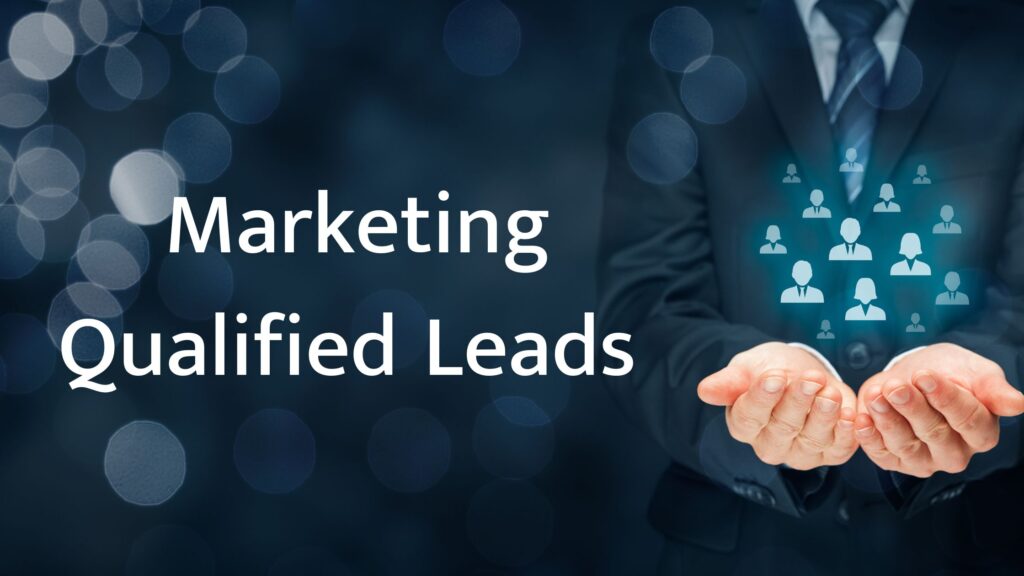The success of any B2B sales strategy hinges on the quality of the data used to reach potential clients. To get the most out...
Have you ever found yourself spending countless hours trying to close a sale, only to realize that the potential customer was not a good fit for your business? If so, you know firsthand the importance of lead qualification.
A study by Forrester found that the process of qualifying leads can lead to the generation of up to 50% more revenue opportunities, while also reducing costs by 33%. This demonstrates the value of investing in a thorough lead qualification process in order to maximize the efficiency and profitability of your sales efforts.
So, what exactly is a lead qualification and why is it so crucial in today’s market? In this blog, we will delve into the world of lead qualification and explore the reasons why it is essential for businesses looking to achieve success in 2023.
What is a Lead?

A lead in sales is a potential customer who has expressed an interest in a business’s products or services and is therefore considered a potential opportunity for the business to make a sale. Leads can come from a variety of sources, including online forms, trade shows, events, and referrals.
In the sales process, leads are typically qualified and nurtured through a series of steps designed to determine their fit, level of interest, budget, authority, and timing. This process, known as lead qualification, is explained in detail below.
What is Lead Qualification?
Lead qualification is the process of evaluating and determining the potential value of a lead, or potential customer, for a business. It involves assessing the fit of a lead with your business’s products or services, their level of interest in the company’s offerings, and their ability to make a purchase. Lead qualification helps your business prioritize your marketing and sales efforts by focusing on the most promising leads and allows them to allocate resources more efficiently.
Importance of Lead Qualification in 2023
The lead qualification process is important for your business in 2023 because it helps you to prioritize your efforts and allocate resources effectively, resulting in higher conversion rates and increased revenue. Now that you understand what lead qualification is, let’s delve into the reasons why it is so important for businesses in 2023.
1. Improved Sales Efficiency

One key benefit of lead qualification is improved sales efficiency. By identifying and focusing on the most promising leads, you can improve the efficiency of your sales efforts and close deals more quickly.
Focusing on qualified leads allows a business to use its resources more efficiently, as it can direct its efforts toward prospects who are more likely to convert into customers. This helps to save time and money that might otherwise be wasted on unqualified leads.
According to a study by MarketingSherpa, 79% of marketing leads do not make it to actual sales and the reason is the lack of a lead qualification process. This shows the significant impact that leads qualification can have on the efficiency of the sales process. By focusing on the most promising leads, you can streamline your sales efforts and drive revenue growth.
2. Tailored Marketing and Sales Efforts
Lead qualification is an important tool for businesses looking to tailor their marketing and sales efforts to the needs and interests of individual leads. By evaluating the specific characteristics of each lead, you can better understand their needs and preferences and tailor your sales approach accordingly.
This personalized approach can be more effective at converting leads and improving the overall effectiveness of the sales process. In fact, according to Salesforce, 76% of consumers prefer to do business with companies that understand their pain points and expectations. This shows the importance of understanding and addressing the needs of your target audience in order to effectively meet their expectations and stand out from the competition.
By tailoring your marketing and sales efforts to individual leads, you can improve the customer experience and drive revenue growth.
3. Identifying and Nurturing the Most Valuable Lead
The lead qualification allows businesses to identify the most valuable leads and allocate more resources to nurturing and converting them. By focusing on the most valuable leads, you can maximize their return on investment and drive long-term growth.
Additionally, by nurturing leads through the sales process, you can build stronger relationships with your customers and foster loyalty, leading to a more sustainable and profitable business model.
A study by CSO Insights found that companies with a strong lead qualification process have a 9.3% higher sales quota achievement rate.
4. Cost Savings and Reduced Churn Rate

By focusing on the most promising leads, you can reduce your marketing and sales costs and improve your return on investment. The “qualified leads” are the cream of the crop – they meet your target audience criteria, have a pressing need for your product or service, and are financially capable of making a purchase.
In addition to reducing marketing and sales costs, lead qualification can also help businesses to reduce their churn rate (the percentage of customers who stop doing business with a company).
According to a study by Bain & Company, reducing the churn rate by just 5% can lead to an increase in profitability of 25-95%. By focusing on lead qualification, businesses can drive cost savings and improve their bottom line.
Qualified Vs Unqualified Leads
It is important to distinguish between qualified and unqualified leads when generating leads for your business, as this helps you to focus your efforts on those prospects who are most likely to convert into customers. So how do you determine whether or not a lead is qualified? Let’s find out!
| Factors | Qualified Leads | Unqualified Leads |
| Fit | Are a good fit for the business’s products or services | May not have a need for the business’s offerings or may not be a good fit for the business |
| Interest | Show a genuine interest in the business’s products or service | may not be interested in the business’s offerings |
| Budget | Have the financial resources to make a purchase | May not have the budget to make a purchase |
| Authority | Have the authority to make a purchase decision on behalf of their organization | May not have the authority to make a purchase |
| Familiarity | Are familiar with the product or services and has engaged with marketing activities | Are not familiar with the product or service and has not engaged with the marketing activities. |
Types of Qualified Leads
Leads can be qualified at multiple stages of the sales process. Based on the position of the leads and the extent of understanding they have about the business, they can fall under any of the following categories:
1. Marketing Qualified Leads (MQLs)

Marketing qualified leads are leads that have shown a strong interest in the business’s products or services and are likely to be interested in learning more. These leads may have engaged with the business’s marketing efforts, such as downloading a whitepaper or attending a webinar.
2. Information Qualified Leads (IQLs)
Information-qualified leads are leads that have shown an interest in learning more about the business’s products or services and are seeking additional information. These leads may be in the early stages of the sales cycle and may not yet be ready to make a purchase.
3. Sales Accepted Leads (SAL)
Sales-accepted leads are leads that have been fully qualified and are ready to enter the sales process. These leads have typically demonstrated a strong fit with the business’s products or services, have a high level of interest in the business’s offerings and have the financial resources to make a purchase.
4. Sales Qualified Leads (SQLs)
Sales-qualified leads are leads that have been evaluated by the sales team and deemed ready to enter the sales process. These leads are typically further along in the sales cycle and are more likely to convert into customers.
Basic Requirements of Lead Qualification
Without a structured lead qualification process, it can be difficult to determine which leads are worth pursuing. To make the process more strategic and consistent, here’s our basic requirements list to guide your qualification efforts.
1. Establishing ICP (Ideal Customer Profile)
One effective way to qualify leads is to establish an Ideal Customer Profile (ICP). An ICP is a detailed description of your ideal customer, including their demographics, needs, interests, and budget. By establishing an ICP, businesses can more easily identify and prioritize their most promising leads. To qualify leads using an ICP, follow these steps:
Define your ICP
Determine the characteristics of your ideal customer, including their demographics, needs, interests, and budget.
Identify potential leads
Look for leads that match the characteristics of your ICP. This can be done through a variety of methods, such as social media, email marketing, paid advertising, and content marketing.
Evaluate the quality of leads
Once you have identified potential leads, compare their characteristics to your ICP to determine their suitability as a target for sales efforts.
Prioritize leads
After evaluating the quality of your leads, you can prioritize them based on their potential value to your business. This will help you to allocate your resources more effectively and focus on the most promising leads.
Nurture leads
Once you have identified and prioritized your leads, it is important to nurture them through the sales process. This can be done through a variety of methods, such as email campaigns, personalized content, and targeted offers.
2. Lead Scoring
Another effective way to qualify leads is to use a lead scoring system. A lead scoring system is a tool that helps businesses to evaluate the potential value of leads based on a set of predetermined criteria. By assigning scores to leads based on their characteristics, businesses can more easily identify and prioritize their most promising leads. To qualify leads using a lead scoring system, follow these steps:
Define your scoring criteria
Determine the characteristics that are most important to your business, such as demographics, needs, interests, and budget.
Assign weights to each criterion
Assign a weight to each criterion based on its relative importance to your business. For example, if budget is a key factor in your decision to pursue a lead, you might assign it a higher weight than other criteria.
Score each lead
Using the criteria and weights you have defined, score each lead based on its characteristics. This will help you to identify the most promising leads and prioritize your efforts.
Set thresholds for qualified leads
Determine the minimum score that a lead must achieve in order to be considered qualified. This will help you to separate high-quality leads from low-quality leads.
Nurture leads
Once you have identified and scored your leads, it is important to nurture them through the sales process. This can be done through a variety of methods, such as email campaigns, personalized content, and targeted offers.
3-Step Lead Qualification Process
After you’ve defined your ICP and established your lead scoring model, there are three main steps to qualify a lead which are explained below:
1. Research
The first step in lead qualification is to research potential leads to gather information about their needs, preferences, budget, and decision-making authority. This can be done through a variety of methods, such as online research, social media, and customer surveys. In addition to gathering information about the lead’s needs and preferences, it is also important to research the lead’s company and gather information about its funding and growth signals. This can include information such as
1. Funding: Is the company well-funded or struggling to raise capital? This can be an important factor in determining whether the company is a good fit for your product or service.
2. Positive growth signals: Are there any indicators that the company is experiencing growth or success? This could include things like new partnerships, product launches, or awards.
3. Negative growth signals: Are there any indicators that the company is experiencing challenges or setbacks? This could include things like layoffs, financial struggles, or negative press.
2. Outreach
After researching potential leads, the next step is to reach out to them to initiate a conversation and build a relationship. This can be done through email, phone, or in-person communication. The goal of outreach is to establish a connection with the lead and start building trust and credibility.
During the outreach phase, it is important to ask questions that will help you to gather more information about the lead’s needs and preferences. Some examples of questions to ask include:
> What are the top priorities for your business at the moment?
> How are you currently addressing these priorities?
> What challenges are you facing in your business?
> How can our product or service help to solve these challenges?
3. Qualification
The final step in lead qualification is to evaluate the potential lead to determine its suitability as a target for sales efforts. This can be done by comparing the lead’s characteristics to your Ideal Customer Profile (ICP) or using a lead scoring system to evaluate its potential value to your business. By evaluating leads in this way, businesses can prioritize their efforts and allocate resources more effectively, resulting in higher conversion rates and increased revenue.
Conclusion
In a world where the competition is fierce and the attention span of potential customers is shrinking, lead qualification is more important than ever. By carefully evaluating and prioritizing your leads, you can focus your efforts on the most promising opportunities and increase your chances of closing deals.
Don’t let valuable leads slip through the cracks – take the time to qualify them and watch your business soar to new heights in 2023 and beyond.
Ready to level up your lead qualification game? Contact our lead generation experts now.!




